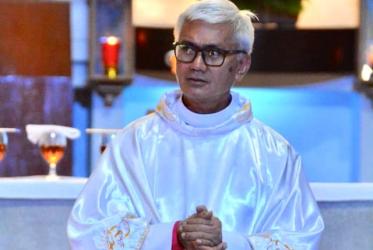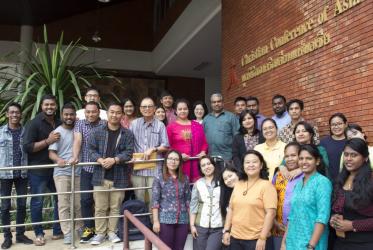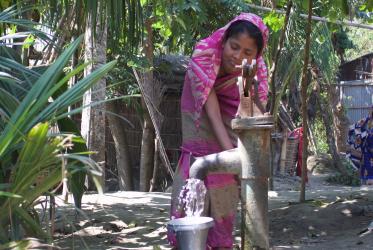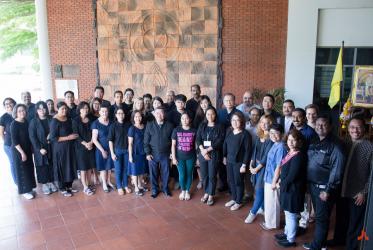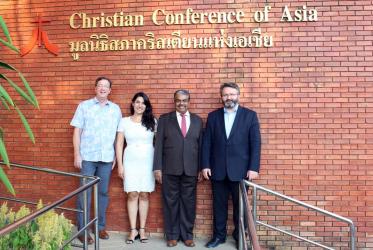Displaying 41 - 60 of 118
WCC condemns massacre of farmers in Philippines
12 April 2019
Le COE condamne le massacre de fermiers aux Philippines
12 April 2019
Peace is common denominator of all major religions
05 March 2019
WCC pilgrimage turns its eyes to Asia
04 March 2019
Conciliar Unity: Whither Vision and Direction?
14 December 2018
All pilgrim routes lead to COP24
11 December 2018
35th General Assembly of Church of Christ in Thailand commences
23 October 2018
#WCC70: A prayer about health and healing
20 July 2018
#WCC70: Une prière pour la santé et la guérison
20 July 2018
